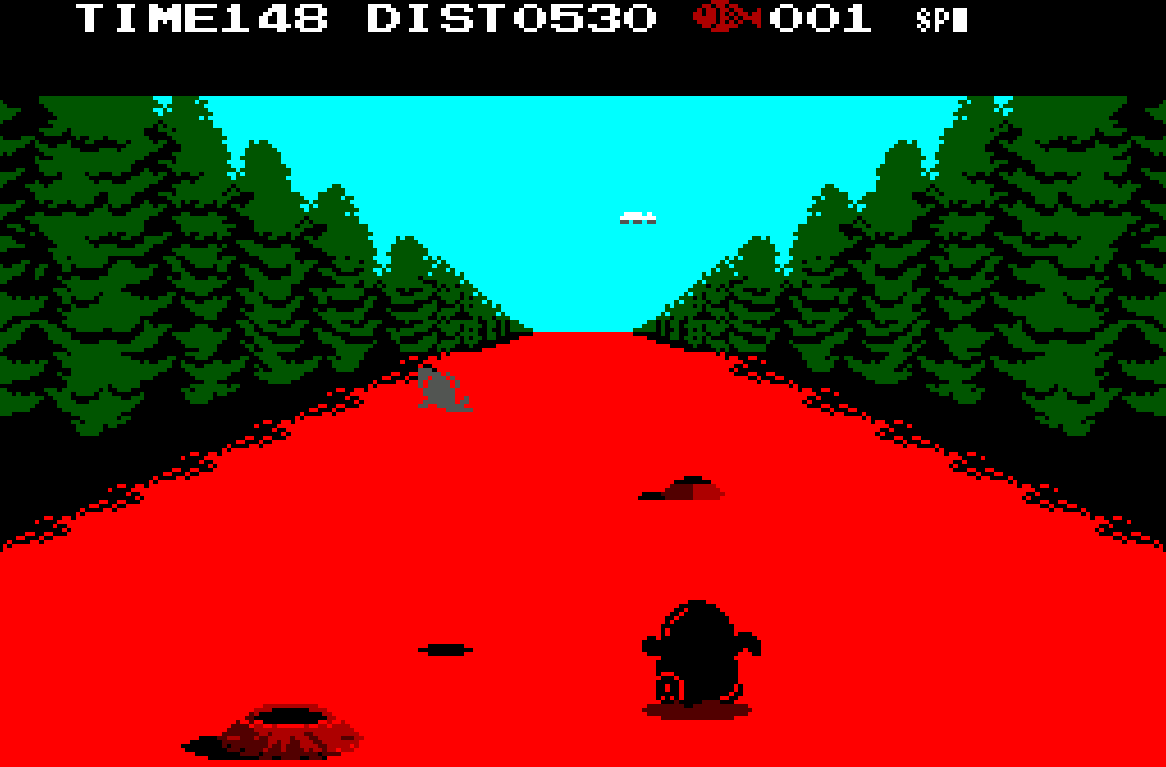2 min to read
Penguin Adventure (SMS)
Embark on a Polar Odyssey: Penguin Adventure for Sega Master System.
 The following is the third-party SEGAMS generic release version of the game.
The following is the third-party SEGAMS generic release version of the game.
About the game
Released in 1986, “Penguin Adventure” for the Sega Master System is an engaging platformer that stands as a port of the original MSX game developed by Konami. Developed by Yuji Naka, who later gained fame as the lead programmer of Sonic the Hedgehog, this title introduces players to the lovable protagonist, Penta the penguin. The storyline follows Penta’s quest to rescue his sweetheart, Penko, from the clutches of an evil condor and restore peace to the Antarctic kingdom.
The game unfolds across multiple stages, each presenting a unique set of challenges and enemies. Penta’s journey takes him through diverse environments, from frozen tundras to perilous caverns, showcasing the game’s commitment to visual variety. The graphics, though constrained by the hardware limitations of the Sega Master System, manage to capture the essence of the Antarctic landscape with their crisp, colorful, and charming presentation.
Penguin Adventure’s gameplay revolves around platforming and puzzle-solving elements. Penta must navigate through treacherous terrain, avoid hazards, and defeat enemies using his remarkable abilities. Penta’s primary means of defense is his ice breath, which he can use to freeze foes temporarily. Additionally, he can collect fish scattered throughout the levels to earn points and extra lives, adding an incentive for exploration.
One of the standout features of the game is the inclusion of a day-night cycle, a rarity for its time. The changing time of day not only impacts the game’s aesthetics, with the palette shifting to reflect different lighting conditions, but it also affects the behavior of certain enemies. This dynamic element adds an extra layer of strategy to the gameplay, requiring players to adapt their approach depending on the time of day.
The level design in Penguin Adventure is both challenging and imaginative. From slippery ice platforms to intricate mazes, each stage introduces new obstacles that keep players on their toes. The puzzles are cleverly integrated into the platforming elements, encouraging players to think strategically to progress. The difficulty curve is well-balanced, offering a fair but progressively more challenging experience as players advance through the game.
In addition to the standard platforming levels, Penguin Adventure introduces underwater segments that showcase the versatility of the gameplay. These aquatic sections add an extra dimension to Penta’s journey, requiring players to navigate through submerged passages while avoiding aquatic adversaries. The inclusion of diverse environments and gameplay mechanics contributes to the game’s overall depth and replayability.
The music and sound effects in Penguin Adventure are memorable, with catchy tunes complementing the on-screen action. The limited audio capabilities of the Sega Master System are utilized effectively, creating an immersive sonic experience that enhances the overall atmosphere of the game. The soundtrack, composed by Ikutaro Kakehashi, adds an extra layer of nostalgia for players revisiting this classic title.
Penguin Adventure received positive reviews upon its release, earning praise for its engaging gameplay, charming graphics, and memorable soundtrack. While it may not have achieved the same level of mainstream success as some of Sega’s other titles, it remains a beloved gem among retro gaming enthusiasts. The legacy of Penguin Adventure endures through its influence on future platformers and its place in the hearts of those who fondly remember guiding Penta on his epic Antarctic quest.